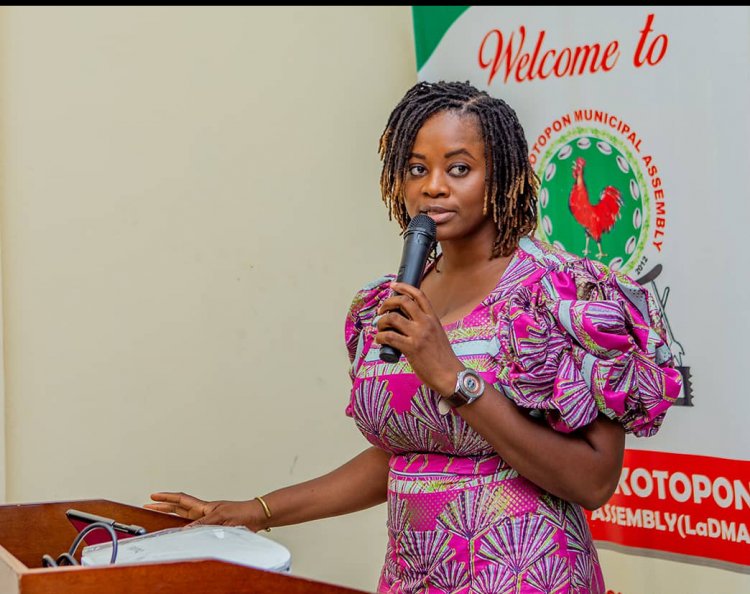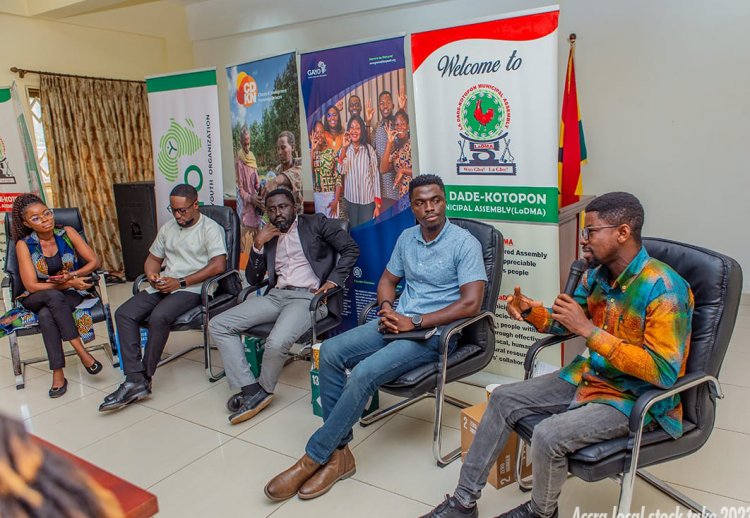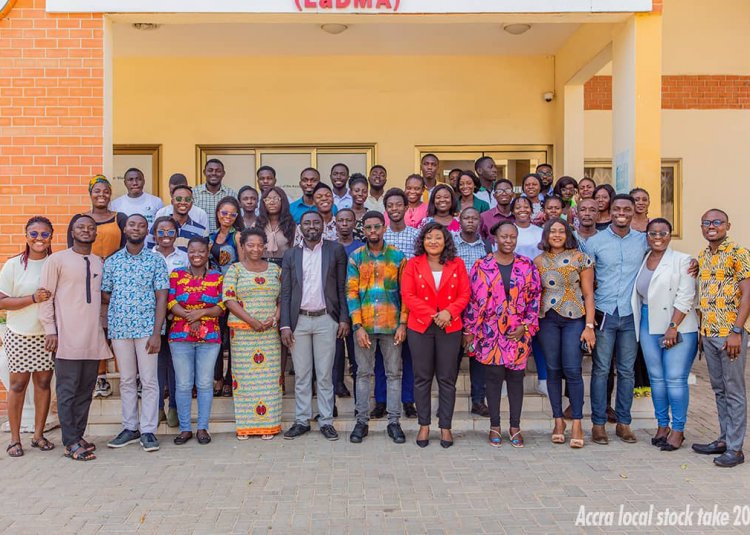MMDAs urged to have comprehensive Local Action Plans against Climate Change
Local Action Plan according to Ms. Josephine Agbeko of C40 Cities should have the components of the country’s Nationally Determined Contributions (NDCs) comply with its local climate action plan.

To ensure climate change issues are tackled in the local communities and cities, Districts, Municipalities, and Metropolitan Assemblies have been called upon to have a comprehensive climate change local action plan in place.

Local Action Plan according to Ms. Josephine Agbeko of C40 Cities should have the components of the country’s Nationally Determined Contributions (NDCs) comply with its local climate action plan.

Addressing the participants at the local stocktake event ahead of COP28 on 24th November 2023 in Accra, Ms. Agbeko revealed that city data shows that the waste and transport sectors emit the highest amount of greenhouse gases, hence it is “really critical that the climate action plan within the city start looking at how waste management can be done to promote recycling, zero waste strategies within a city”.
For the transport sector, she was of the view that structures should be put in place to lower the kind of emissions that typically would be the case in a business-as-usual scenario.
“The climate action plan of the city must be looking at ways to reduce the emissions but also doing so in a way that creates equitable, fair, and just societies for us all”, she reiterated. The Local stocktake event under the theme: Empowering Ghana: The Accra Local Stock Take Unveiling Grassroots Solutions for Climate Resilience” was organized by Green Africa Youth Organization (GAYO) in partnership with the International Council for Local Environment Initiatives (ICLEI), the West African Science Service Center on Climate Change and Adapted Land Use ( WASCAL), the Climate and Development Knowledge Network (CDKN) and La Dade Municipal Assembly (LADMA).
The event aimed to promote collaborations and knowledge exchange as well as empower local communities to actively participate in the global fight against climate change by bridging the gap between global aspirations and local realities. Furthermore, it provides a platform to embolden Ghana’s determination to create meaningful change, ensuring that climate action is not just a global agenda but a shared responsibility woven into the very fabric of its society.
Ms Agbeko recounted the importance for communities and cities to create feedback loops hence “ensuring that community voices are represented in these discussions and not just the communities attending”.
“We must listen, hear what the communities are saying, understand their perspectives and how they’re being impacted by these issues of climate change in our communities, then collectively we would be able to develop the solutions that would bring value to both city residents and city administration’s objectives”, she acknowledged.
As COP28 begins, she was hopeful that, “the discussions, both bilateral and multilateral conversations the country would lead or engage in would lead to really powerful outcomes for city residents as well as the nation at large.
Moreover, “ the implementation of projects needs to be backed by the right kind of funding structures that are needed. Because if “we’re are looking at tapping into resources that exist beyond our boundaries, it’s important that within these conversations, we’re also able to build partnership”.
In her conclusion, she lamented that loss and damage are beginning to reflect a lot in the way that communities and cities experience the impacts of climate change.
Therefore expect that the loss and damage conversation at COP 28 will be advanced further, adding a “financing mechanism for loss and damage that started at the last COP will move a lot further for us to see some real meaningful changes and actions after COP 28”.
Additionally, City authorities should think of how to support communities to adapt to these upcoming challenges citing the recent Akosombo Dam spillage as an example of how loss and damage affect communities.
On his part, Mr Ernest Kwabena Danso who represented the Environmental Protection Agency (EPA) stressed that communities are mostly affected hence the need to create more awareness at the local level.
In addressing the above, he was of the view that stakeholders, government, and Civil Society Organisations (CSOs) have a critical role in securing safety, development, and well-being and CSOs should be able to do it.
“Also as we go to COP28, we should be putting fashionable programs in place when it comes to negotiations. Africa’s position must be well articulated because when it comes to climate change issues, we are very vulnerable”, he stressed.
“Africa’s contribution to emissions is less unlike countries like the US, Canada, and other developed countries, so Africa should have a concreted strong force.
They should come together and negotiate better. I foresee that we have a better deal like the last time we had, especially the developed countries to make more commitment to be able to ensure that we have a lot of resources, especially funding for addressing climate issues within Africa and Ghana to be specific”.
He concluded. The Conference Of Parties (COP28) takes off from 30th November to 12th December 2023 in Dubai.
At COP 28 countries, companies, financial institutions, and civil societies will come together to affirm their will to tackle the climate challenge through concerted and collaborative actions. Participants at the event engaged in discussions on evaluating the effectiveness of countries' NDCs, and climate action plans, assessing the integration of urban elements in climate action, understanding the ambition of local-level climate Action Plans (CAPs), and exploring opportunities for climate justice.
Source: GAYO Communications Unit

 Prosper Kwaku Selassy Agbitor
Prosper Kwaku Selassy Agbitor 



































